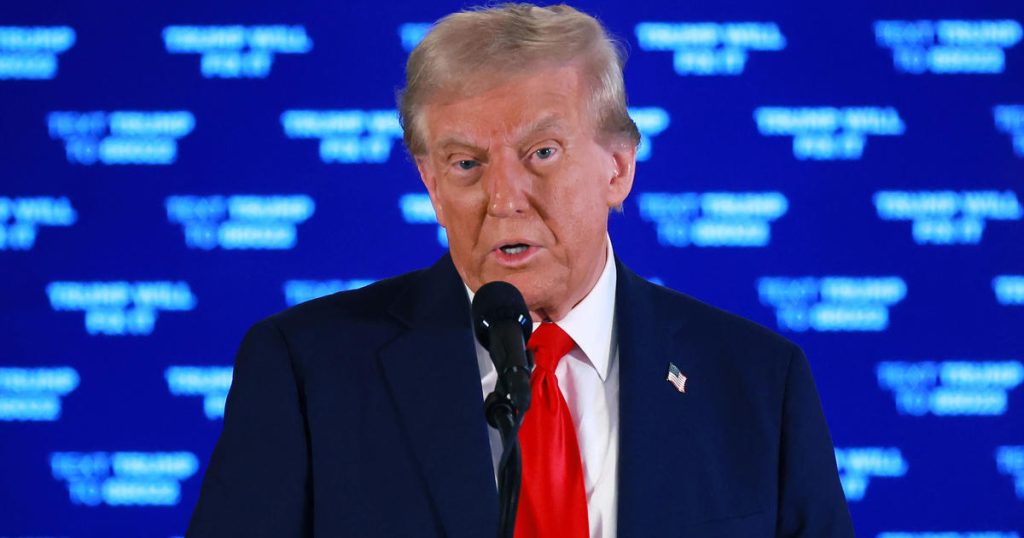Former President Donald Trump has filed a lawsuit against CBS News, alleging that the network’s editing of a recent 60 Minutes interview with Vice President Kamala Harris was deceitful and misleading. The lawsuit claims that the editing of the interview was meant to disadvantage Trump and assist his opponent in the 2024 presidential election. CBS News has denied the allegations of deceptive editing and stated that the interview was not doctored.
The lawsuit, filed in federal court in Texas, does not claim that Trump was defamed by the network, but rather attempts to use a Texas statute meant to prevent advertisers from misleading the public. Legal experts have criticized the lawsuit as a misapplication of the law and an outrageous violation of First Amendment principles. The lawsuit seeks at least $10 billion in damages and a jury trial.
The lawsuit comes after Trump had been voicing his displeasure about the interview on the campaign trail for weeks. The former president has a history of filing lawsuits against media organizations, including a defamation case against ABC News and prior defamation lawsuits against CNN, The Washington Post, and The New York Times. Trump had declined an invitation to sit for his own interview on 60 Minutes.
In response to the lawsuit, CBS News has called the claims “completely without merit” and stated that the network intends to vigorously defend against the lawsuit. The network explained that the two clips of the interview were edited differently due to time constraints and the need to cover a wide range of topics in a 21-minute segment. The network maintains that the editing was clear, accurate, and on point.
Critics of the lawsuit view it as an attempt to silence or punish the media for their coverage of political figures. The lawsuit has raised questions about the use of legal action as a means of addressing perceived media bias or unfair treatment. The lawsuit is part of a broader trend of politically sensitive cases being directed to conservative-leaning courts, raising concerns about the impartiality of the judiciary.














